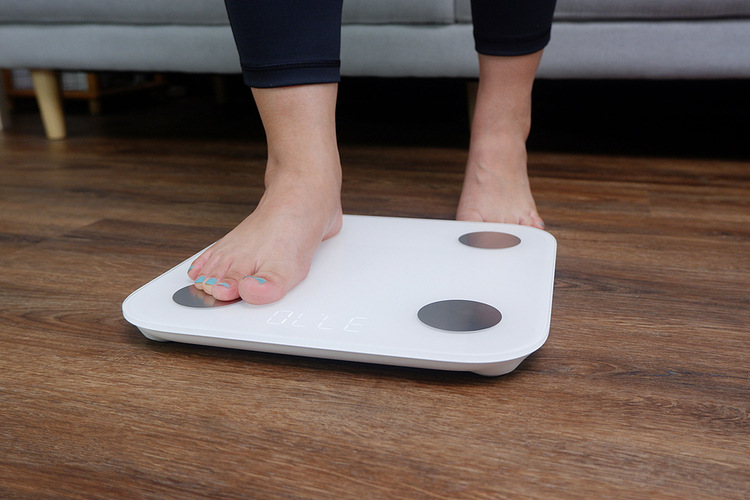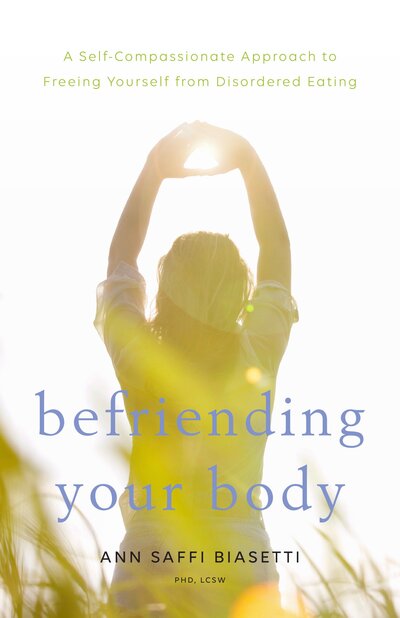|
Getting your Trinity Audio player ready...
|
Do you feel like you’re at war with your body? You’re not alone. Many people struggle with their body, no matter what size or shape it is. Whether you’re trying to lose weight or manage a chronic health condition, the body doesn’t always cooperate. In this post, I’ll talk about why we feel compelled to fight ourselves and how we can find a better way to reach our goals.
Why Do We Fight Against Our Bodies?
Every year, countless people make New Years’ resolutions to lose weight or get in shape. People pile into gyms and research the latest diet trends looking for the fastest, easiest way to force their bodies into the desired shape. While there’s nothing wrong with wanting to get fitter or slim down, most people go about it the wrong way.
In my posts, I often mention working with your body instead of fighting against it. Trying to force your body thin and then hating it for not doing so fast enough will never give you the results you want. In fact, if you don’t learn to listen to your body‘s specific needs, you could be putting yourself at risk of not seeing results, quitting, or worse, hurting yourself.
Many of us don’t realize that we all have different needs, and what worked for someone else may not work for us. Then, when we don’t see the same results, we punish ourselves with less food, more exercise, and negative self-talk. None of this is healthy or helpful, and in the end, it makes reaching our goals much harder.
“You can’t hate yourself happy. You can’t criticize yourself thin. You can’t shame yourself worthy. Real change begins with self-love and self-care.” – Jessica Ortner Click To TweetUnderstanding Your Body
We’re always with our bodies, but we don’t always communicate well with them. Sometimes, our bodies relay important info that we simply ignore. They give us signals that aren’t always easy to see unless you’re looking for them. If we ignore the signals, our bodies keep fighting with us, and we end up getting nowhere.
For example, I spent most of my life trying to lose weight and failing to keep it off long-term. I would always have trouble with binge eating and end up gaining the weight back. However, cravings to binge eat were my body’s way of telling me I was eating too little. Once I stopped restrictive dieting, my binge cravings were reduced, and my weight dropped to a healthier range.
Another thing you need to watch out for is changes that are happening to your body. As you get older, you may not be able to eat or exercise the same way you used to. Or, the same routine may not give you the same results. You’ll have to find out what your body needs and what works the best for you. Easier said than done, right?
How to Get in Touch with Your Body
Getting in touch with your body won’t always come easy. It can be a lot of trial and error before you start to understand what you need. Taking the time to look over what has and hasn’t worked for you in the past can be helpful, as well as researching any conditions you may have. The goal is to get a better understanding of what brings you success and what sets you back.
For instance, I noticed that when I was forcing myself to eat foods I didn’t like, I was miserable and more likely to quit eating healthy. So, I’m better off without those foods, even if they’re highly nutritious. I also have better success with getting active if my activities are fun and get me out in nature. Because of this, many of my workouts are kayaking, skiing, hiking, etc.
Lastly, make sure you’re paying attention to any pain or discomfort you’re feeling. Having stiff or sore muscles after working out is alright, but if you’re in pain or starting to feel worn out, it’s best to take a step back. Feeling worn out can also mean you’re not eating enough, getting enough protein or nutrition, sleeping well, etc.
I know this all sounds time-consuming, but if it saves you from trying the same useless routine over again, it’s absolutely worth it. It’ll save you a lot of tears, and you’ll be more confident feeling that connection with your body.
Making a Plan That Works for You
After learning to stop fighting against your body, you can make a plan to reach your goals with a higher chance of success. Now that you’re done with the “I hate my body” approach to fitness, you can use an easier, more effective method of goal-setting. I recommend starting with the S.M.A.R.T. goal approach, as it allows you to lay out a clear path ahead.
Things to Consider When Setting Goals:
What exactly are you looking to achieve? Write down your goals and find out what you need to do to reach them. Make sure your goals are meaningful and clear, or you’ll lose motivation pretty quickly.
What obstacles are you going to face? Do you have anything that will get in the way of reaching your goals, such as a demanding job, family, or physical limitations? Factor these things into your plan so you’re prepared.
How much are you willing to change? I’ve always found reaching goals much easier when I make slow changes instead of trying to overhaul my whole life at once. Change is hard, so make it easier on yourself by planning smaller adjustments over time. If your goal is weight loss, my freebie for subscribing to my site is a great start!
What will you need to learn? Will you need to read up about healthy food choices or proper form while exercising? Do the research you need to set you up for success, and if necessary, find someone who’s qualified to help.
Not Saying “I Hate My Body” Again
If you need a little extra help understanding your body, I have a great recommendation! Befriending Your Body by Ann Saffi Biasetti is a book written to help readers reconnect with their bodies. It graciously teaches you to have compassion for yourself, pay attention to your thoughts, and heal from the inside out.
Befriending Your Body gives you the power to discover who you really are and opens the door to self-improvement. It also offers many simple practices using guided meditation, yoga, and journaling. If you want to learn more about the book, I wrote a complete review of it here.
Click below for quick links to the book on Amazon!
Fighting Your Body: Final Thoughts
Once you’ve given up fighting against your body, living a healthier life becomes a lot easier. You’ll work with your body to improve it instead of battling it every step of the way. Also, you’ll end up being more compassionate towards yourself when you don’t reach your goals as quickly as you’d like.
On a final note, understand that it won’t always be easy. Even I still hate my body sometimes. But I’m better at being friends with my body now than I ever have been, and you can be too!
Do you often find yourself fighting your body? What have you done to work with it instead? Share your story in the comments!
That’s it for now everyone. If you’ve found some value in this post, please share it to inspire others too! Thanks!

Facebook | Twitter | Instagram | Pinterest
This post contains affiliate links for products that I love. If you use these links to buy something I may earn a commission with no additional cost to you. Thanks for helping keep this site going! Also, this post was made for the site Lose Weight With Ang. If you’re reading this on a different site, please email us https://loseweightwithang.com/contact/





It’s unfortunate that our society pressures people to focus on the outside and not pay attention to what our bodies are telling us.
Just another reason diet culture is trash.
For sure.
Listening to my body is something I need to focus more on. As well, these are outstanding goal setting instructions!
Thanks a lot!
This is such a great post! I have been going through this exact thing while dealing with gaining some weight, so I appreciate this post.
Thank you! I’m glad I was able to help 😊
It’s a shame we’re all so conditioned to fight against out body to hit a goal or a weight or something when it’s doing freaking everything for us and we need to be taking care of it and working with it. Great tips and great post x
So true. Thanks Jenny!
Ang, I love Jessica Ortner’s advice in your quote. I also honed in on your first suggestion – make a plan. I would add to define what success looks like. It may not be weight – it could be dress sizes or belt notches. Or, it could be sustainable weight – my favorite. Well done. Keith
Yes, planning it out helps a lot. Thanks!
Gosh listening to the cues our bodies give off is quite important yet so hard to do. The struggle between what we think we want/need vs what our bodies actually need can sometimes be polar opposites. I’ve learnt to listen better and respond to my body, but what I struggle with is accepting that it won’t ever be ‘perfect’.
I struggle with that as well. I have to remind myself there’s no such thing as perfect.